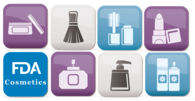


MusclMasster LLC Issues Voluntary Nationwide Recall of Al-Er-G Capsules Because it Contains the Banned Substance Ephedra. MusclMasster, LLC of Wheat Ridge, CO is recalling all bottles of Al-Er-G Capsules because they contain the presence of Ephedra Herb, an FDA banned ingredient. Dietary supplements containing ephedrine alkaloids pose a risk of serious adverse events, including heart attack, stroke, and death, and that these risks are unreasonable in light of any benefits that may result from the use of these products under their labeled conditions of use. More information.
|

Astrazeneca Initiates Voluntary Nationwide Recall of One Lot of Brilinta 90 mg Professional Sample Bottles Due to Report of Another Medicine in One Bottle From That LotAstraZeneca is notifying physicians and consumers that it is voluntarily recalling one lot of professional (physician) sample bottles containing eight tablets of Brilinta (ticagrelor) 90mg tablets as a precautionary measure. This voluntary recall follows a report that a professional sample bottle containing eight tablets of Brilinta 90mg also contained another medicine called Zurampic (lesinurad) 200 mg tablets which is also manufactured by AstraZeneca.
Unintentional dosing with Zurampic has the potential to lead to adverse renal effects including acute renal failure which is more common when Zurampic is given alone as it should be used in combination with a xanthine oxidase inhibitor. More information
|

Lupin Pharmaceuticals Inc. Announces a Nationwide Recall of Mibelas; 24 Fe (Norethindrone Acetate and EthinylEstradiol 1mg/0.02mg Chewable Tablets and Ferrous Fumarate 75 mg) Tablets Due to Out of Sequence
Lupin Pharmaceuticals Inc. announced that it has voluntarily recalled lot L600518, Exp 05/18 of Mibelas 24 Fe (Norethindrone Acetate and Ethinyl Estradiol 1 mg/0.02 mg chewable and ferrous fumarate 75 mg) Tablets at the consumer level. A confirmed market complaint indicated a packaging error, where the blister was rotated 180 degrees within the wallet, reversing the weekly tablet orientation and making the lot number and expiration date no longer visible. The first four days of therapy would have had four non-hormonal placebo tablets as opposed to the active tablets.
As a result of this packaging error, oral contraceptive tablets that are taken out of sequence may place the user at risk for contraceptive failure and unintended pregnancy. More information
|
Comunicaciones de la FDA sobre la seguridad de los medicamentos en español
Descargo de responsabilidad: La FDA reconoce la necesidad de proporcionar información importante sobre seguridad de los medicamentos en idiomas distintos al inglés. Hacemos lo mejor posible para proporcionar versiones en español precisas y oportunas de nuestras Comunicaciones de Seguridad de Medicamentos. Sin embargo, en caso que existiera discrepancias entre las versiones en inglés y la de español, la información contenida en la versión en inglés es la que se considera como versión oficial. Si tiene alguna pregunta, por favor contáctese con Division of Drug Information en druginfo@fda.hhs.gov. Comunicaciones de la FDA |


FDA knows the major public health consequences that can result from drug shortages. These shortages occur for many reasons including manufacturing and quality problems, delays and discontinuations. When issues are discovered, FDA works closely with the company to address risks involved to prevent harm to patients. FDA also considers the impact a shortage would have on patient care and access and works with the company to restore supplies while also ensuring safety for patients. More information
|
Drug Shortages Voluntarily Reported by Manufacturers During the Past 2 Weeks:
Information about blood and biologic shortages, resolved shortages, and discontinuations
La FDA reconoce las consecuencias significativas para la salud pública que pueden resultar de la escasez de medicamentos y hace un gran esfuerzo dentro de sus facultades legales para abordar yprevenir la escasez de medicamentos. La escasez se produce por muchas razones, incluyendo problemas de fabricación y calidad, retrasos y discontinuación del producto. Cuando los problemas son descubiertos por la empresa o el público y reportados a la FDA o se descubren por inspecciones de la FDA, la FDA trabaja en estrecha colaboración con la empresa para hacer frente a los riesgosinvolucrados y evitar daños a los pacientes. La FDA también considera el impacto que una escaseztendría en la atención médica del paciente y al acceso del producto y trabaja con la empresa pararestablecer el suministro al tiempo que garantiza la seguridad de los pacientes. Más información
|

FDA approves first generic Strattera for the treatment of ADHDThe FDA approved the first generic versions of Strattera (atomoxetine) to treat attention-deficit/
Apotex Inc., Teva Pharmaceuticals USA Inc., Aurobindo Pharma Limited and Glenmark Pharmaceuticals Limited gained approval to market atomoxetine in multiple strengths.
Generic prescription drugs approved by the FDA have the same high quality and strength as brand-name drugs. Generic prescription drug manufacturing and packaging sites must pass the same quality standards as those of brand-name drugs. More information FDA expands use of Sapien 3 artificial heart valve for high-risk patientsThe FDA approved an expanded indication for the Sapien 3 Transcatheter Heart Valve (THV) for patients with symptomatic heart disease due to failure of a previously placed bioprosthetic aortic or mitral valve whose risk of death or severe complications from repeat surgery is high or greater.
"For the first time, a regulatory agency is approving a transcatheter heart valve as a valve-in-valve treatment when bioprosthetic mitral or aortic valves fail in patients who are at high or greater risk of complications from repeat surgery," said Bram Zuckerman, M.D., director of the division of cardiovascular devices at the FDA’s Center for Devices and Radiological Health. "This new approval offers U.S. patients with failing surgical bioprosthetic aortic or mitral valves a less-invasive treatment option." More information
|
For information on drug approvals or to view prescribing information and patient information, please visit Drugs@FDA or DailyMed.

View FDA's Comments on Current Draft Guidance page, for a list of current draft guidances and other topics of interest for patients and caregivers.
Request for comment by June 12, 2017: Enhancing Patient Engagement Efforts Across the Food and Drug Administration. The FDA released a notice in the Federal Register establishing a public docket to solicit input on ongoing efforts to enhance mechanisms for patient engagement at the Agency. Engaging with patients, their caregivers, and advocates has long been a priority of the Agency. In this tradition, FDA intends to enhance future. To learn more about the ways the FDA is currently working with patients visit the FDA Patient Network and we encourage you to submit your comments to the Federal Register before the comment period closes. |

#IAmHHS: Fighting Misleading Prescription Drug Ad Claimsby: Mike Sauers, Staff supervisor in FDA’s Office of Prescription Drug Promotion, Center for Drug Evaluation and Research
These days, you can hardly turn a magazine page, watch a TV show or sit in the lobby of your doctor’s office without seeing advertising and promotions for prescription drugs. They’re everywhere you go. And they tend to be impressive and reassuring. But are they accurate?
At the FDA, I’m staff supervisor of the Office of Prescription Drug Promotion’s (OPDP) Advertising and Promotion Policy Staff, which helps develop policies for advertising and promotion of prescription drugs across the United States. In my job, I help make sure that drug companies’ communications of information about their prescription drugs to consumers and healthcare professionals are truthful and not misleading. In my role, I also help to make sure our stakeholders in the pharmaceutical industry understand the rules of the road.
To read the rest of this post, see FDA Voice Blog on June 1, 2017
|

In cancer treatment, there’s more than one way to measure patient benefit by: Richard Pazdur, M.D., FDA’s Director, Oncoloy Center of ExcellenceWe all want a cure for cancer. But the reality is that advances in cancer treatment rarely come in one big discovery, but rather with the continued step-by-step progress in developing new therapies. Currently, a few cancers—such as childhood leukemia and testicular cancer—can be cured. There are many ways of evaluating cancer therapies, including an improvement in overall survival, stabilizing the disease, and reducing tumor burden and tumor-related symptoms. Over the years, we have discussed with many patients facing serious and life-threatening diseases how to evaluate cancer treatments. The patients have told us there is a need for flexibility in our evaluation process.
Before a new drug is approved, FDA evaluates clinical trials in which the drug is tested in patients. We hope that the study will show a result, or endpoint, that helps us understand if the drug is safe and effective. When evaluating drugs that treat life-threatening illnesses like cancer, the risk-benefit analysis may involve weighing relatively higher risks against relatively smaller benefits
To read the rest of this post, see FFDA Voice Blog on June 1, 2017
|

In this section you will find a comprehensive list of all the meetings that the FDA is involved with. The meetings may include advisory committee meetings, public workshops and public conferences that are seeking to hear from patients and caregivers.
Most FDA meetings are free to the public and do not require the public to register. Interested persons may present data, information, or views, orally at the meeting, or in writing, on issues pending before the committee. Other types of meetings listed may require prior registration and fees.
|
View FDA's Patient Network Calendar of Public Meetings page for a complete list of meetings and workshops.
For additional information on other agency meetings please visit Meetings, Conferences, & Workshops.
|

Seasonal Allergies: Which Medication is Right for You?
The pollen count is sky-high. You’re sneezing, your eyes are itching, and you feel miserable. Seasonal allergies are real diseases that can interfere with work, school or recreation. Allergies can also trigger or worsen asthma and lead to other health problems such as sinus infection (sinusitis) and ear infections in children.
An allergy is your body’s reaction to a substance that it has identified as an invader. If you have allergies and encounter a trigger—called an “allergen”—your immune system fights it by releasing chemicals called histamines (hence the term “antihistamines”). Histamines cause symptoms such as repetitive sneezing and itchy, watery eyes. More information
5 Tips for a Healthy Vacation
Planning your next beach vacation? While having fun in the sun, consider these five tips to make sure your trip is a healthy one.
Avoid Tanning, Be Sun Safe
Thinking about getting a “healthy tan” over vacation? Think again. Any increase in skin pigment (called “melanin”) is a sign of damage. Ultraviolet radiation from the sun can cause wrinkles and dark spots among other problems—and tanning puts you at higher risk for skin cancer. Plus, sunlight reflecting off of sand or water increases exposure to UV radiation and increases your risk of developing eye problems. More information |
More Consumer Updates
For previously published Consumer Update articles that are timely and easy-to-read and cover all FDA activities and regulated products. More information
For previously published Consumer Update articles that are timely and easy-to-read and cover all FDA activities and regulated products. More information
En Español
La información en esta página es para el público en general, y para profesionales y educadores de salud. Esta información puede ser distribuida y publicada sin previa autorización. En Español
La información en esta página es para el público en general, y para profesionales y educadores de salud. Esta información puede ser distribuida y publicada sin previa autorización. En Español

The Safety Reporting Portal
The Safety Reporting Portal (SRP) streamlines the process of reporting product issues to the Food and Drug Administration and the National Institutes of Health. Whatever your role, (manufacturer, health care professional, researcher, public health official, or concerned citizen), when you submit a safety report through this Portal, you make a vital contribution to the safety of America's food supply, medicines, and other products that touch us all. More information
Center for Food Safety and Applied Nutrition
The Center for Food Safety and Applied Nutrition, known as CFSAN, carries out the mission of FDA. The Center provides services to consumers, domestic and foreign industry and other outside groups regarding field programs; agency administrative tasks; scientific analysis and support; and policy, planning and handling of critical issues related to food and cosmetics. More information
Food Facts for You
The Center for Food Safety and Applied Nutrition, known as CFSAN, issues food facts for consumers to keep you and your family safe. More information |

Animal Health LiteracyAnimal Health Literacy means timely information for the benefit of all animals and their humans. With continuous communication and outreach, the Center for Veterinary Medicine (CVM) strives to enhance the public trust, promote safe and effective use of the animal health products we regulate, and share our scientific endeavors. CVM provides reliable, science-based information to promote animal and human health. More information and Publicaciones en Español del FDA
Animal and Veterinary UpdatesAnimal and veterinary updates provide information to keep your pets healthy and safe. More information
|

How to Report a Pet Food Complaint
You can report complaints about a pet food product electronically through the Safety Reporting Portal or you can call your state’s FDA Consumer Complaint Coordinators. Please provide as much information as possible in your complaint, such as exact name of product, type of container, lot number, UPC codes, how the food was stored, and purchase date and exact location where purchased. If possible, please save the original packaging until the pet food has been consumed. The packaging contains IMPORTANT information often needed to identify the variety of pet food, the manufacturing plant, and the production date. More information |

Missed the last issue of CTPConnect?The Center also publishes a regular periodical known as CTPConnect, a plainspoken digest with the latest stories from the Center. Sign up today to receive the next issue of CTPConnect and other important updates from CTP directly to your inbox.
|

Tips to help avoid "vape" battery explosionsYou may have heard that e-cigarettes, or "vapes," can explode and seriously injure people. To help reduce the risk of vape battery overheating, fires, and explosions, the FDA has developed an infographic with five key tips, a video on how to report adverse events to the FDA’s Safety Reporting Portal, and shareable and downloadable content to help spread the word about vape battery safety.
|
From plant to product to puff—where do toxic chemicals in cigarettes come from?With more than 7,000 chemicals in cigarette smoke—over 70 of which are linked to cancer—it comes as no surprise that cigarettes contain harmful chemicals that cause death and disease. But where do these toxic chemicals come from? And why are there so many? Watch the FDA’s video series about chemicals in cigarettes to find out, and test your knowledge with our short quiz online.
How cigarettes are made and how you can make a plan to quit
Ever wonder why it’s so hard to kick smoking to the curb? Well, we’ve got an answer! CTP created an infographic that explores how cigarettes are made, highlighting how their very design may be an obstacle to quitting. As people across the country pledge to quit smoking, consider sharing this infographic with someone who could benefit.
How cigarettes are made and how you can make a plan to quit
Ever wonder why it’s so hard to kick smoking to the curb? Well, we’ve got an answer! CTP created an infographic that explores how cigarettes are made, highlighting how their very design may be an obstacle to quitting. As people across the country pledge to quit smoking, consider sharing this infographic with someone who could benefit.
FDA’s LGBT Public Education Campaign Makes Headlines
FDA’s “This Free Life” Campaign was recently recognized at the annual Association of National Advertisers (ANA) Multicultural Marketing & Diversity Conference. Winning the Multicultural Award of Excellence in the LGBT category, FDA made its mark among other category winners such as Coca-Cola, Toyota, and McDonalds. Watch the Ad and learn more about FDA’s “This Free Life” campaign!
FDA’s “This Free Life” Campaign was recently recognized at the annual Association of National Advertisers (ANA) Multicultural Marketing & Diversity Conference. Winning the Multicultural Award of Excellence in the LGBT category, FDA made its mark among other category winners such as Coca-Cola, Toyota, and McDonalds. Watch the Ad and learn more about FDA’s “This Free Life” campaign!

Share the image and support those who matter to you most!
Do you know someone who could benefit from CTP’s messages about tobacco? Sharing information about the health effects of tobacco has never been so easy. Simply save either image in this section and post it to your social media account, such as Facebook or Twitter. |

Bad reaction to a cosmetic? FDA needs to know
What do you do if you have a reaction after using a cosmetic product? First, stop using the product and contact your healthcare provider. Next, please report it to FDA.
Here’s why that next step is so important: Cosmetic products aren’t required by law to have FDA approval before they go on the market. Companies that market cosmetics have a legal responsibility to ensure product safety, but FDA can only take action if the product is shown to be unsafe after the product is on the market.
And, because the law doesn’t require cosmetic companies to share customer complaints or other safety information with FDA, voluntary reports from consumers and healthcare providers are one of the best ways for FDA to learn about any problems.
Cosmetics include a range of products people use every day, such as moisturizers, makeup, shampoos and conditioners, face and body washes, deodorants, nail care products, hair dyes and relaxers, and tattoos. More information
|
Recalls and Alerts
To see safety alerts and recent recalls related to cosmetics and other products regulated by FDA. More information
To see safety alerts and recent recalls related to cosmetics and other products regulated by FDA. More information
What to watch for, how to report
You can report an allergic reaction, a rash, redness, burn, hair loss, headache, infection, illness, or any other unexpected reaction, whether or not it required medical treatment. You can also report a bad smell, color change, or other sign of contamination. You can choose the way you’d prefer to report:
You can report an allergic reaction, a rash, redness, burn, hair loss, headache, infection, illness, or any other unexpected reaction, whether or not it required medical treatment. You can also report a bad smell, color change, or other sign of contamination. You can choose the way you’d prefer to report:
- Call an FDA Consumer Complaint Coordinator if you want to speak directly to a person about your problem.
- Complete an electronic Voluntary MedWatch form online.
- Complete a paper Voluntary MedWatch form that you can mail to FDA.

Information about Expanded Access
Expanded access, sometimes called "compassionate use," is the use outside of a clinical trial of an investigational medical product (i.e., one that has not been approved by FDA). FDA is committed to increasing awareness of and knowledge about its expanded access programs and the procedures for obtaining access to human investigational drugs (including biologics) and medical devices. More information |
Learn about what your physician should do before submitting a request for individual patient expanded access use of an investigational medical product, who may be eligible for expanded access, associated costs, FDA contacts and more. Information for Patients
|
Learn about your responsibilities under the expanded access pathway, how to submit a request for expanded access for an individual patient (including for emergency use), which forms to use, FDA contacts and more. Information for Physicians
|

FDA Patient Network
The FDA Patient Network contains a series of webpages, webinars and presentations on topics related to patient engagement, FDA regulations, understanding medical product (Drugs, Biologics, and Devices) approval and medical product safety updates, Take me to the FDA Patient Network , Follow us on twitter or take me to FDA Webinars.
FDA Basics
Each month, different centers and offices at FDA will host an online session where the public can ask questions to senior FDA officials about a specific topic or just listen in to learn more about FDA. More information |

healthfinder.gov
Welcome to healthfinder.gov, a government Web site where you will find information and tools to help you and those you care about stay healthy. More information /más información
FDA Email Updates
Sign up for one of the FDA disease specific e-mail list that delivers updates, including product approvals, safety warnings, notices of upcoming meetings, and notices on proposed regulatory guidances. |





















.jpg)












No hay comentarios:
Publicar un comentario